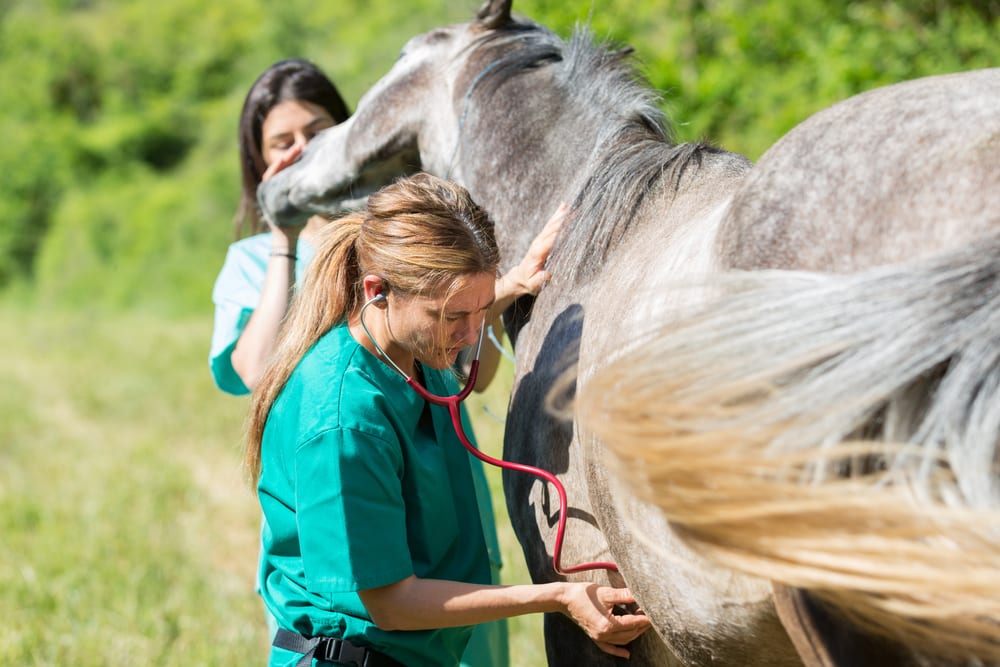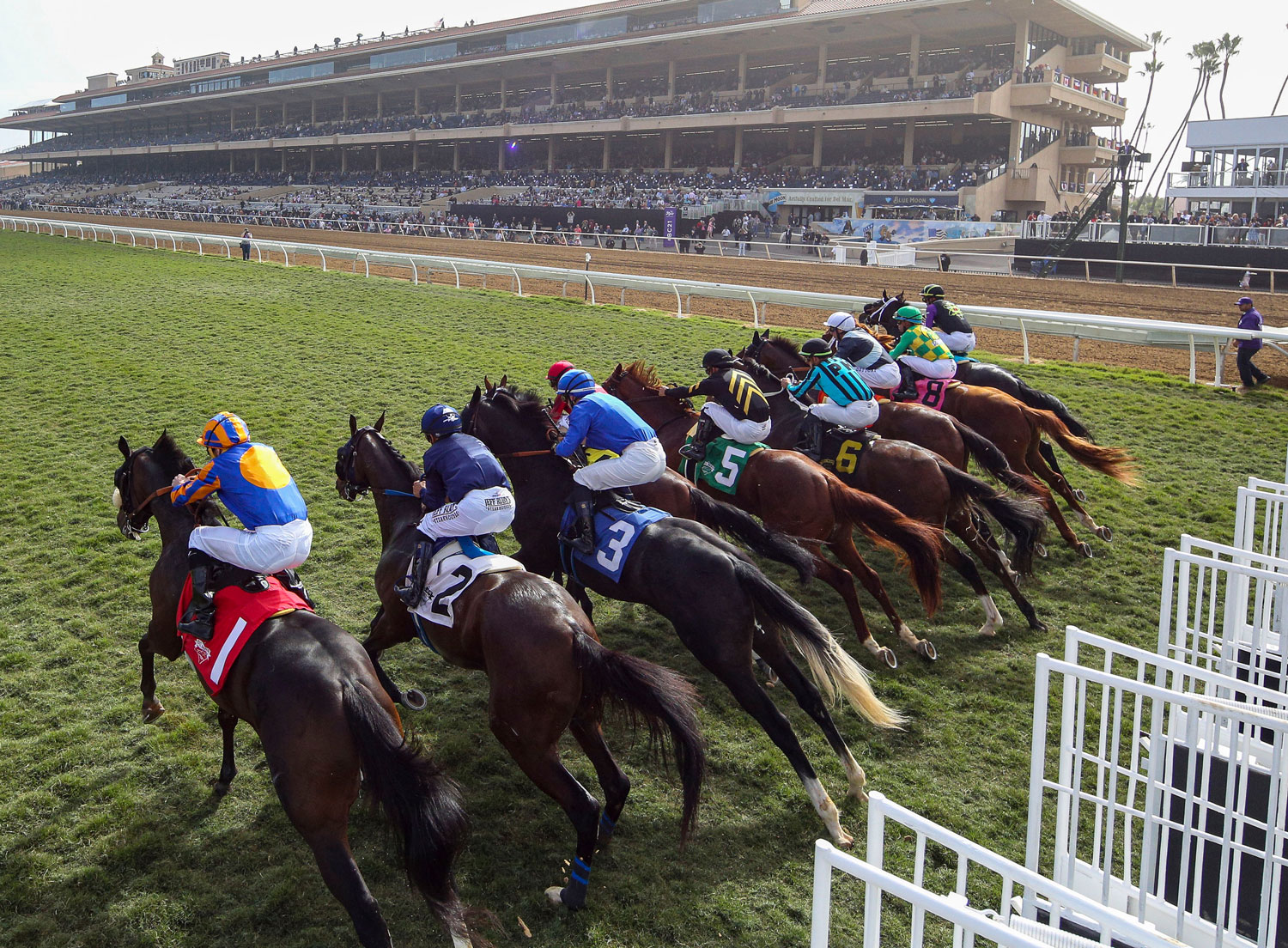Colic is the digestive ailment probably most universally recognized by horse people, young and old. Simply defined as “abdominal pain,” colic is a general term for a host of GI conditions, some of which can be life threatening. Because colic is both common and seemingly indiscriminate in the horses it afflicts, there’s a general belief that, for the most part, it just happens and there’s not much we can do other than be educated to catch it early.
We are trained from our earliest days in the barn aisle to make sure the horses always have clean water and can’t access the grain bin, and to introduce new feeds slowly and avoid feeding an overheated horse in order to prevent colic. But when these risk factors aren’t at play in a colic episode, we tend to think that it wasn’t preventable.
The fact of the matter is that we can do a lot more to prevent colic than we think. While some colics may be unavoidable, it’s a myth that there’s nothing we can do to prevent most colic. That’s because we CAN improve our management methods to promote better digestive health in horses and reduce the risk of many of the most common types of colic.
Risk Factors for Colic Supported in Research
A small percentage of colics in horses are simply unavoidable, such as those resulting from cancers, enteroliths (naturally occurring build up around an object or mineral deposit), or strangulation/torsion (a twist in the gastrointestinal system of a horse) and intussusception (when the intestine slides back into itself, causing blockage).
However, the vast majority of colics in horses are considered “idiopathic,” or of unknown cause, simply because the equine gastrointestinal tract is extremely difficult to view and diagnose definitively without surgery. These can include gas colic, spasmodic colic, or impactions that range from mild to severe. Numerous studies involving thousands of horses on different farms, with various management methods, and in a range of climates have started to show evidence of factors that increase colic risk. The research is nicely summarized in the paper Colic: Risk Factors, Prevalence, and Prevention and shows increased colic risk with:
- Type of feed – simply feeding grain-based feeds (not just accidentally overeating/feeding it), increases colic risk, as may feeding low-quality concentrates and hays.
- Frequency of feeding – horses fed just twice a day are at higher risk for colic than horses fed smaller, more frequent meals throughout the day.
- Keeping horses stalled – in addition to suddenly putting a horse on stall rest, simply keeping horses in stalls and restricting activity increases the risk for colic.
- Not providing water always – even turning a horse out in a paddock or dry lot for a few hours without access to clean water increases the risk of impactions.
- Traveling – the stress of traveling and/or competing has been shown to increase colic in horses, as well.
There are many things that can cause colic in addition to the above. While this list is certainly not exhaustive, it does represent some of the most common management methods we use that may contribute to colic.
Why Good Gut Health Helps Prevent Colic
There is also a proven correlation between the factors listed above and declining digestive health in horses. These things have also been shown to lead to digestive imbalance, acidosis, ulceration, and inflammation throughout the equine digestive tract. The link between gastric ulcers and colic is strongly supported by research, yet another evidence that poor gi tract health can lead to colic.
So it stands to reason that taking steps to promote optimal digestive health in horses will in turn decrease the risk for a host of GI conditions and diseases, including colic.
Preventing colic in horses isn’t just about avoiding adverse events such as ingesting moldy feed, eating too much rich spring grass, or not drinking enough water. Those are critical – but equally valuable and important is the general improvement of gi tract health.
Management Methods That Help Reduce Colic Risk
Good managers know to always introduce spring grass and new feed types slowly, to adequately cool a horse before feeding, and always provide access to quality feeds and clean water. Serious horse people also know that additional steps should be taken to encourage better digestive health and prevent colic:
- Reduce grain-based feeds. Increase roughage through pasture grass and hay and use beet pulp to meet higher-caloric requirements for horses that really need it.
- Increase turnout time. Less stall time, more unrestricted movement.
- Feed smaller meals more frequently. Smaller meals plus more chewing time are better for the gut from stomach to tail.
- Provide free access to forage. Horses need to have hay or grass nearly around the clock. If they aren’t turned out 24/7 consider use hay nets or slow feeders to lengthen feeding time.
- Consider added digestive support. If it’s not possible to implement all of these into your horse’s routine, you may want to consider additional methods of gi tract health support.
While it may be true that we can’t prevent ALL colics in horses, there is more you can do to promote gi tract health and reduce colic risk than you may believe. It’s a myth that colic just happens and there’s not much we can do to prevent it.
Download our FREE guides to learn more about what causes colic and what you can do to avoid it>>




